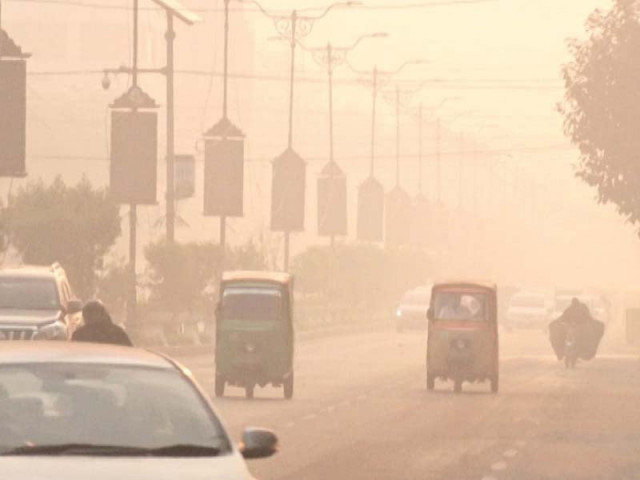Call for multi-sector approach to combat smog
Experts stress need for clean energy, sustainable planning & stricter regulations

Experts have called for a comprehensive and multi-sectoral approach to tackle smog and improve air quality in Pakistan while targeting the root causes of pollution.
They said London's iconic smog once synonymous with the city was a temporary nuisance but today, across South Asia, a far more dangerous form of pollution looms as thick and choking smog settles over cities like Delhi and Lahore, leaving millions gasping for air.
The smog, they added, has become a serious health emergency for millions in India and Pakistan driven by crop burning, industrial emissions and vehicles.
Climate change has exacerbated the problem, limiting natural pollution-clearing mechanisms. Pakistan, particularly Punjab, has been grappling with a severe smog crisis in recent years, affecting cities like Lahore, Faisalabad, and Bahawalnagar.
Every winter, especially in November and December, these areas are engulfed in toxic haze, leading to health issues and disrupting daily life.
The crisis is fueled by factors like crop burning in neighbouring Indian states, local industrial emissions, vehicular pollution, and the use of low-quality fuel. This results in dangerous levels of pollutants like sulfur dioxide, carbon monoxide, and nitrogen oxides. In Lahore, during peak smog season, the air quality index (AQI) can reach hazardous levels, equivalent to smoking dozens of cigarettes daily.
Muhammad Saleem Shaikh, the media spokesperson for the Ministry of Climate Change & Environmental Coordination in response to media queries, said that tackling smog and improving air quality in Pakistan requires a comprehensive, multi-sectoral approach targeting the root causes of pollution.
"Key measures include strengthening regulations, transitioning to clean energy, sustainable urban planning, controlling agricultural stubble burning, promoting electric vehicles, adopting clean industrial practices, and raising public awareness about the health and environmental impacts of smog.
He emphasised that these actions can only succeed with strong governance and public participation, which are crucial for improving air quality and reducing the burden of smog.
Shaikh noted that climate change intensifies smog in Punjab by altering weather patterns, which trap pollutants and create severe environmental, health, and economic challenges.
Rising temperatures, unpredictable rainfall, and changing agricultural practices have intensified conditions that contribute to smog, highlighting the need for long-term adaptations. Punjab, one of Pakistan's most industrialised provinces, is facing longer and more severe smog episodes, he added.
"Shorter harvest cycles have also increased crop residue burning, a major contributor to smog.



















COMMENTS
Comments are moderated and generally will be posted if they are on-topic and not abusive.
For more information, please see our Comments FAQ